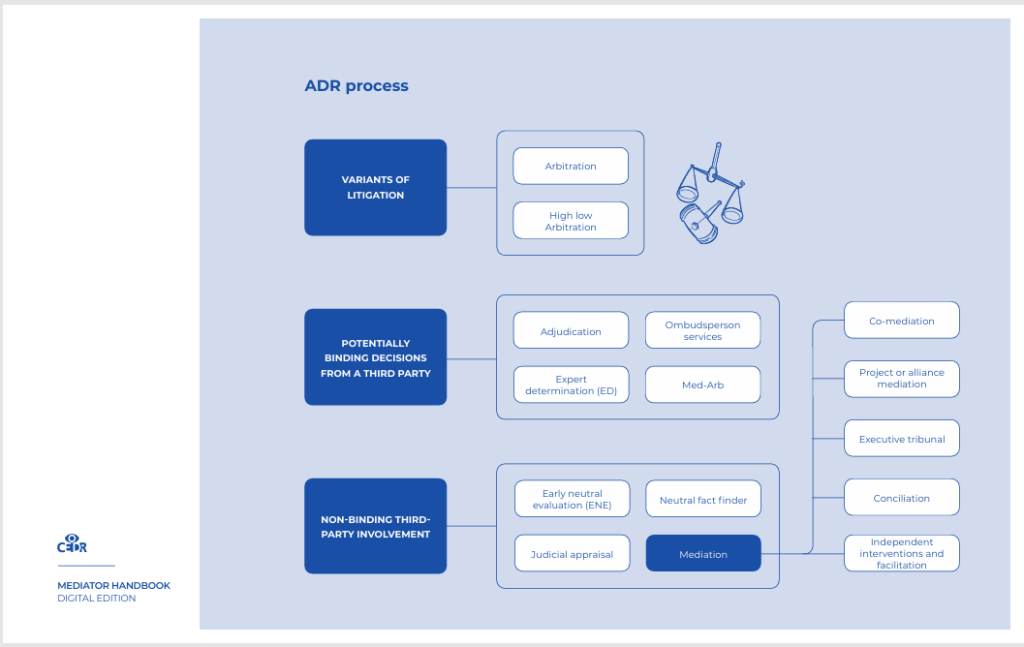Arbitration, a cornerstone of Alternative Dispute Resolution (ADR), was developed to address many of the challenges associated with traditional litigation. A neutral person called an “arbitrator” hears arguments and evidence from each side and then decides the outcome. Arbitration is less formal than a trial and the rules of evidence are often relaxed. In binding arbitration, parties agree to accept the arbitrator’s decision as final, and there is generally no right to appeal. In nonbinding arbitration, the parties may request a trial if they do not accept the arbitrator’s decision.
What is Arbitration?
Arbitration involves a third party, known as the arbitrator, who is empowered to make a binding decision on the dispute. Unlike litigation, arbitrators often possess subject-matter expertise, which can make their decisions more acceptable to the disputing parties. The arbitrator’s ruling is typically based on the relevant laws, binding in nature, and rarely subject to appeal.
How Arbitration Differs from Litigation
While arbitration shares the adversarial and formal nature of litigation, several key differences set it apart:
- Privacy and Confidentiality: Arbitration proceedings are conducted in private, unlike court hearings which are often public.
- Choice of Arbitrator: Parties involved usually have the autonomy to select their arbitrator or panel of arbitrators, ensuring trust and expertise in the decision-making process.
- Flexible Procedures: Arbitration allows the parties to agree on procedural rules tailored to the specific nature of their dispute. The arbitrator is bound by these agreed-upon rules and cannot override them.
Challenges of Arbitration
Despite its advantages, arbitration is not without its downsides:
- Complex Cases: For disputes involving intricate legal issues, extensive documentation, or numerous witnesses, arbitration can become both time-consuming and costly, sometimes surpassing the expenses associated with court litigation.
- Limited Appeals: The binding nature of arbitration means that parties have limited recourse to challenge the arbitrator’s decision, which can be a drawback in contentious cases.
When to Choose Arbitration?
Arbitration is particularly beneficial for disputes requiring technical expertise, confidentiality, or a tailored process. However, for cases involving extensive complexities or a preference for a public forum, litigation might remain the better option.
By understanding the nuances of arbitration, businesses and individuals can make informed decisions about whether it aligns with their dispute resolution needs. When used effectively, arbitration can provide a streamlined, private, and expert-driven alternative to the traditional court system
Arbitration is a key component of Alternative Dispute Resolution (ADR) designed to address the challenges of litigation. It empowers a third party (arbitrator) with subject-matter expertise to make a binding decision, typically based on relevant laws.
Key features include privacy, flexible procedures, and the ability for parties to choose their arbitrator. However, it can be costly and time-consuming for complex disputes and offers limited opportunities for appeal.
Arbitration is ideal for cases needing confidentiality and expertise but may not be suitable for highly intricate or public disputes. It provides a tailored, private, and efficient alternative to traditional court proceedings..



